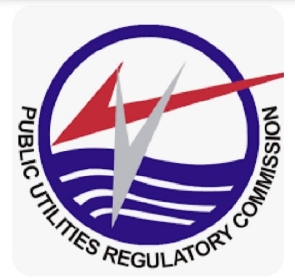 Public Utility Regulatory Commission (PURC)
Public Utility Regulatory Commission (PURC)
The Public Utilities Regulatory Commission (PURC) has increased the average end-user tariff for electricity by 18.36 per cent across the board and also approved a Weighted Average Cost of Gas (WACOG) pegged at GH¢82.84, with effect from June 1, 2023.
This is as a result of 2023 second quarter tariff review of happenings involving natural gas and electricity.
The Quarterly Tariff Review Mechanism seeks to track and incorporate changes in key factors used in determining natural gas and electricity tariffs.
It will be recalled that in January, this year, the PURC increased the average end-user tariffs for electricity by 29.96 per cent approved a WACOG of GH¢ 64, both of which took effective on February 1.
Breadwinners would have to make certain adjustments in home-keeping in order to pay for power because obviously its use cannot be avoided.
For commercial consumers, the current increase means a rise in the cost of their operations, which can call for certain adjustments that affect even welfare issues to the extent that some of them like healthcare payments at the workplace can be suspended or even cancelled.
When one looks at the goings-on, one is tempted to question these unbridled tariff increases sort of.
However, the PURC always gives reasons for such increases detailing the factors causing them.
For instance, for the current increase, the PURC is saying that the weighted average Ghana Cedi-US Dollar exchange rate used for the first quarter tariff review was GH¢10.5421 to the US Dollar but depreciation of the cedi since then has resulted in GH¢12.7118 to the US Dollar.
This means there is an increase of GH¢2.1697 over the first quarter exchange, which translate into 20.58- per cent increase in the amount of Cedis needed to buy the same amount of dollars bought in the first quarter of the year, granting the same amount of power produced then is going to be constant.
What this means is that if the increment is not effected, the amount of power produced will fall and the implications are dire.
Therefore, it is understandable that the decision is meant to prevent extended power outages and their adverse implications on jobs and livelihoods.
From the analysis of the PURC, if the cedi had appreciated against the dollar or had even been at the same rate to the dollar as in the first quarter of the year, maybe the tariff increase would have been slight or completely needless.
It behoves the government therefore to check the free fall of the cedi in order to contain increases in the prices of all goods and services.
We also appeal to the power producers to check all the leaks or losses in their systems such as power theft and non-collection of bills as they contribute to revenue loss and give a wrong picture of financial performance and fester the decision to always increase tariffs to make for such loss.